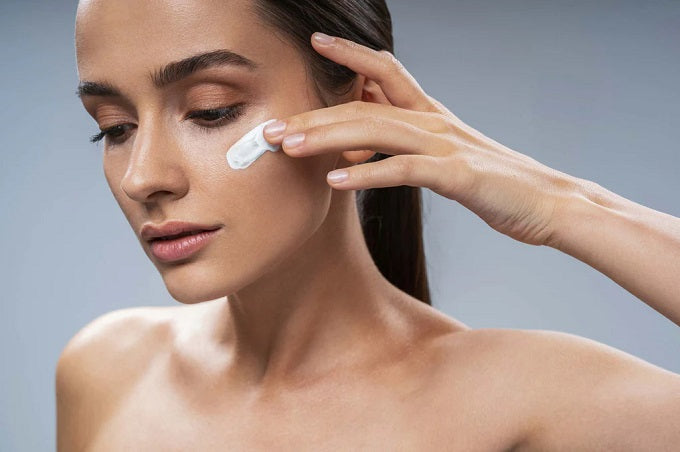Skin proteins can be used to isolate amino acids sequences, which are then converted into peptides. The synthetic peptides can also be applied topically. They have anti-aging properties because they stimulate the body’s production of collagen and elastin.
Specific peptides also work as excellent moisturizers. It helps to keep the skin moist and reduces aging. There are many different types of peptides, and each has its own advantages. This blog will examine the top peptides to use on skin, and their advantages.
Are there any links between peptides and skin benefits?
The use of peptides in skin care products has a remarkable effect on anti-aging. When applied to skin, peptides are beneficial. Skin laxity can be caused by the loss of collagen or elastin. Peptides are amino acid chains responsible for stimulating new collagen formation.
Collagen helps the skin to become more firm and resilient. This may reduce the appearance of fine lines, wrinkles and age spots and even out and brighten skin tone.
Some peptides work by reducing facial muscle contraction speed, which reduces the appearance of wrinkles and lines. Some peptides may be able to eliminate bacteria on skin, and accelerate wound healing thanks to their antibacterial properties. Others actively replace moisture lost by dry skin.
AHK-CU
AHK-Cu has been shown to stimulate collagen production and promote hair and skin growth in animal models. The copper peptide, AHK, is found in the blood of most animals and plays a crucial role in regulating the differentiation and proliferation of the cells that line the blood vessels. Scientists are intrigued by the ability of AHK copper to stimulate hair growth, and reduce the signs of skin ageing.

Decapeptide-12
The Decapeptide-12 oligopeptide is an extremely active oligopeptide that fights tyrosinase. It has been shown in studies that it can improve the texture and tone of skin. Researchers are currently studying Decapeptide’s potential to whiten the skin.
The enzyme Tyrosinase, which is essential to the creation of melanin in plants and animals, can be found throughout many types of tissue. The Peptide Decapeptide-12 inhibits the enzyme Tyrosinase, which is responsible for lightening animal skin.
Lack of tyrosinase is linked with type I oculocutaneous Albinism. Hyperpigmentation is caused by an excess of tyrosinase. This compound might be used to treat skin hyperpigmentation by considering the potency of Decapeptide-12 as a Tyrosinase inhibitor.
GHK-CU
The peptide GHK – CU has a variety of biologically useful functions in its natural form. This tripeptide is of interest to researchers because it has the potential for various functions, such as wound healing activation or blood vessel growth stimulation. The FDA does not license GHK but it shows considerable health benefits that could benefit it as a medical treatment and pharmaceutical.
Matrixyl
Lipopeptides, like Matrixyl, are a combination of fatty acids with amino acids. This peptide is known to have a powerful anti-aging action by boosting collagen and elastin in the skin. Matrixyl is often found in skincare products because animal studies show that it can reduce fine lines, wrinkles and discoloration.
Melanotropin
The hormone that regulates the formation of melanin is called Melanocyte-stimulating hormone (I-MSH), a kind of melanotropin. The Melanostatin Peptide has a proven skin lightening effect. It does this by blocking the production of melanin. According to animal studies, it could be used as a treatment for photodamage or other skin conditions caused by excessive melanin production.